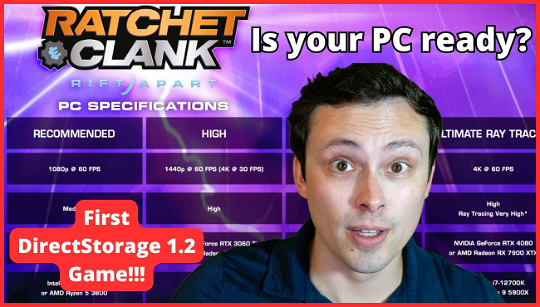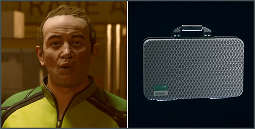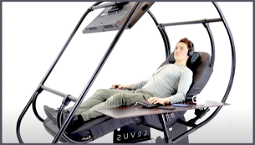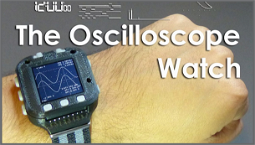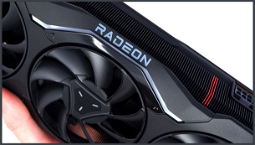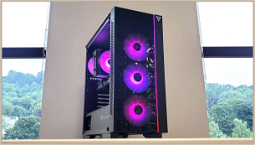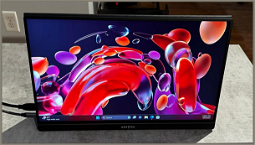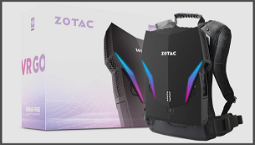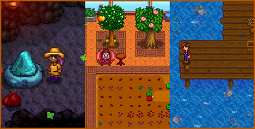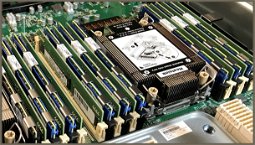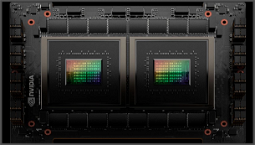With the Ratchet & Clank: Rift Apart PC release date rapidly approaching, the game’s developers have seemingly confirmed a big graphics tech news story – the first PC game to feature GPU decompression. If you’re not familiar with the term, it’s a technique that offloads decompression duties from the CPU to the GPU, and as such, it could have a significant impact on loading times.
Introduced in 2022 as part of Microsoft’s DirectStorage SDK update, GPU decompression offers significantly faster loading times by shifting decompression duties to the GPU. Traditionally, the CPU handles decompression of the data required to load a game level, and this causes loading screens to freeze for a brief period of time. However, using GPU decompression means that the loading screens can remain interactive, allowing for real-time gameplay changes instead of having to wait for the loading screen to complete.
While Technically Forespoken supports Microsoft DirectStorage, we’re still waiting for GPU decompression support to arrive. However, according to a now-deleted Steam forum post spotted by PC Game Spotlight, Ratchet & Clank: Rift Apart will rely on the technology to facilitate instant transitions between dimensions, a key aspect of the game’s very mechanics.
Given that Ratchet & Clank: Rift Apart was one of the first titles to fully utilise the high-speed NVMe SSD of the PlayStation 5, it’s somewhat fitting that it might be the first game to take advantage of GPU decompression. The game’s inter-dimensional gameplay mechanics necessitate seamless switching between game worlds, meaning that the streaming of critical assets within an instant is required to avoid any stuttering or hitching when jumping between levels.
With the PC port imminent, we’ll soon find out whether or not GPU decompression lives up to its potential. With graphical updates such as ultra-wide monitor support, unlocked frame rates, ray-traced reflections, and shadows, the Ratchet & Clank port seems like the perfect opportunity to test out this technology in an actual game.
The developers also note that the PC version supports upscaling technologies from Nvidia, AMD, and Intel, including DLSS 3, FSR 2, and XeSS. However, due to the added graphical features, the system requirements are somewhat steep, requiring a high-end RTX 4080 for optimal visuals at 4K resolution.
Here are the Ratchet & Clank: Rift Apart system requirements:
At the other end of the spectrum, the minimum requirements start with an older-generation Core i3 or Ryzen 3 CPU paired with a GTX 960 or RX 470 for 720P gameplay with low settings. Moving up to 1080P medium settings demands an i5-8400/Ryzen 5 3600 and an RTX 2060/RX-5700. 1440P high settings require an RTX 3060 Ti/RX 6800 and a Core i5-11400/Ryzen 5 5600. Finally, to ray-trace 1440P gameplay at high settings, you’ll need an RTX 3070/RX 6800 XT paired with an i5-11600K/Ryzen 5 5600X.
That’s a lot of GPU power required to run the game at its best, but perhaps that’s to be expected when you consider the level of graphical fidelity on offer. With that in mind, you’ll definitely want to check out our best graphics card options, as the required RTX 4080 at maximum settings will likely require something like our best gaming PC for RTX 4000.
In terms of storage, the requirements are actually pretty modest, especially for a game with GPU decompression support. The minimum requirement is just 75GB of hard drive space, though the developers do recommend an SSD for better performance. They also note that hard drives are still slower than SSDs, and given that the technology to support instant transitions between dimensions is reliant on GPU decompression, it’s clear why the storage requirements aren’t as onerous as they might otherwise be.
